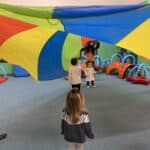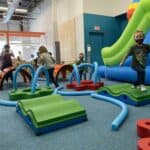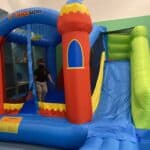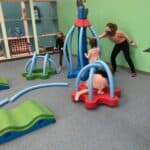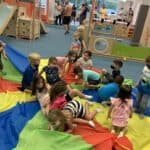Boosts Curiosity
Teaching science from an early age boosts children’s curiosity, which is a critical skill in life. Curiosity can lead to asking questions that spark important exploration and learning in math and science. The most effective way to teach science to young children is through direct manipulation of objects, materials, and phenomena. For example, if a child is interested in snails, they should be offered opportunities to observe snails at home and at school. In addition, they should be provided with opportunities to ask and answer questions, do investigations, and apply problem-solving skills. This requires time, space, and a student-centered approach to learning.
Boosts Math Skills
In early childhood years, children are naturally drawn to math and science. This is based on their experience and knowledge from their family, cultural, and linguistic backgrounds, their individual learning style, and their informal knowledge. During their free play and daily activities, children naturally explore mathematical ideas and processes, such as sorting and comparing, measuring, noticing patterns, the language of space, block play, and building on innate mental addition skills. They also engage in small group interactions and cooperative learning that encourage problem solving and thinking about mathematics in new ways.
Teachers should enhance young children’s mathematics learning by posing questions that provoke clarifications and extensions of existing understandings and by engaging in back-and-forth conversations about problems. This supports children’s innate curiosity and helps them develop the dispositions of flexibility, imagination, inventiveness, persistence, and confidence that they need to succeed in and out of school.
Boosts Communication Skills
When children learn science concepts, they need to communicate their findings to others. This is essential for their development as scientists. To help students develop these skills, teachers should teach science in a way that reflects the developmental stage of the student. This is important because children learn best through hands-on activities, such as conducting investigations and collecting data.
Boosts Creativity
Having an interest in the natural world and learning about the process of growing things, for example, can help kids develop their creativity. This type of experience can be found in early childhood classrooms as teachers encourage children to explore, ask questions, and do investigations. The teaching of science also helps students gain knowledge about different technologies, which can benefit them later in life. They can learn how telescopes, microscopes, as well as other lab equipment work.


